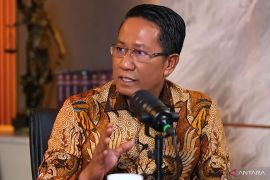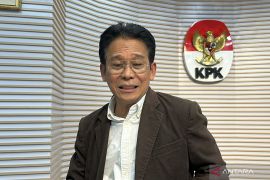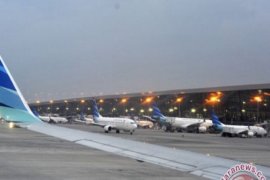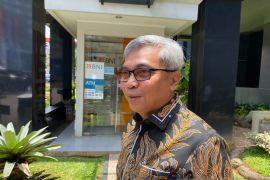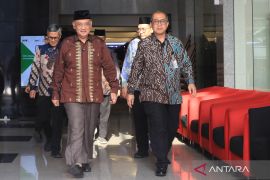"If the information we received from the media is true, the revised version of the KPK law will cripple our power to fight against corruption," Syarif remarked in response to the new KPK law that was passed by the House of Representatives in Jakarta, Tuesday.
The KPK vice chairman noted that the revised version of Law No. 30 of 2002 had overstepped some instructions issued by President Joko Widodo (Jokowi) during a press conference last week, though he fell short of elaborating on his statement.
On Sept 13, at a press conference, Jokowi had agreed to some changes in the anti-graft body that were mandated by the new law including the tapping mechanism, establishment of a supervisory board, and an authority to issue an investigation termination warrant (SP3).
Related news: Lawmakers pass KPK bill into law
Related news: President accentuates KPK's cardinal role in corruption eradication
The new revised version of the KPK law was passed by the House of Representatives’ members and the Indonesian government during the ninth plenary meeting in Jakarta, Tuesday.
Before the bill was passed, the KPK was an independent state body authorized to eradicate corruption; supervise the government body and implement state governance; launch investigations and prosecutions; as well as organize precautionary measures.
However, with the new law in place, the KPK is currently no longer an independent state body but part of executive institutions under the government. Hence, all KPK employees are currently part of civil servants.
Apart from a change in the status, a supervisory board will also monitor the works and administration of the anti-graft body. The board is not only tasked with supervising but also giving permits to KPK officials on whenever they seek to tap some suspects of corruption cases.
Before the new law was passed, the KPK was chaired by a chairman and four vice-chairmen. In terms of supervising its work, the anti-graft body was monitored by an internal office allowed to impose administrative sanctions on KPK officers.
Following a new law, the KPK will also be able to issue an SP3 if the investigations had yet completed for two years. Before the law, the KPK was allowed to launch investigations on some corruption cases for years.
Related news: Syamsuddin rejects KPK Law revision plan over debilitating impact
Related news: Revision of KPK Law to boost its performance: VP Kalla
Translator: Benardy Ferdiansyah/Genta Tenr
Editor: Sri Haryati
Copyright © ANTARA 2019



